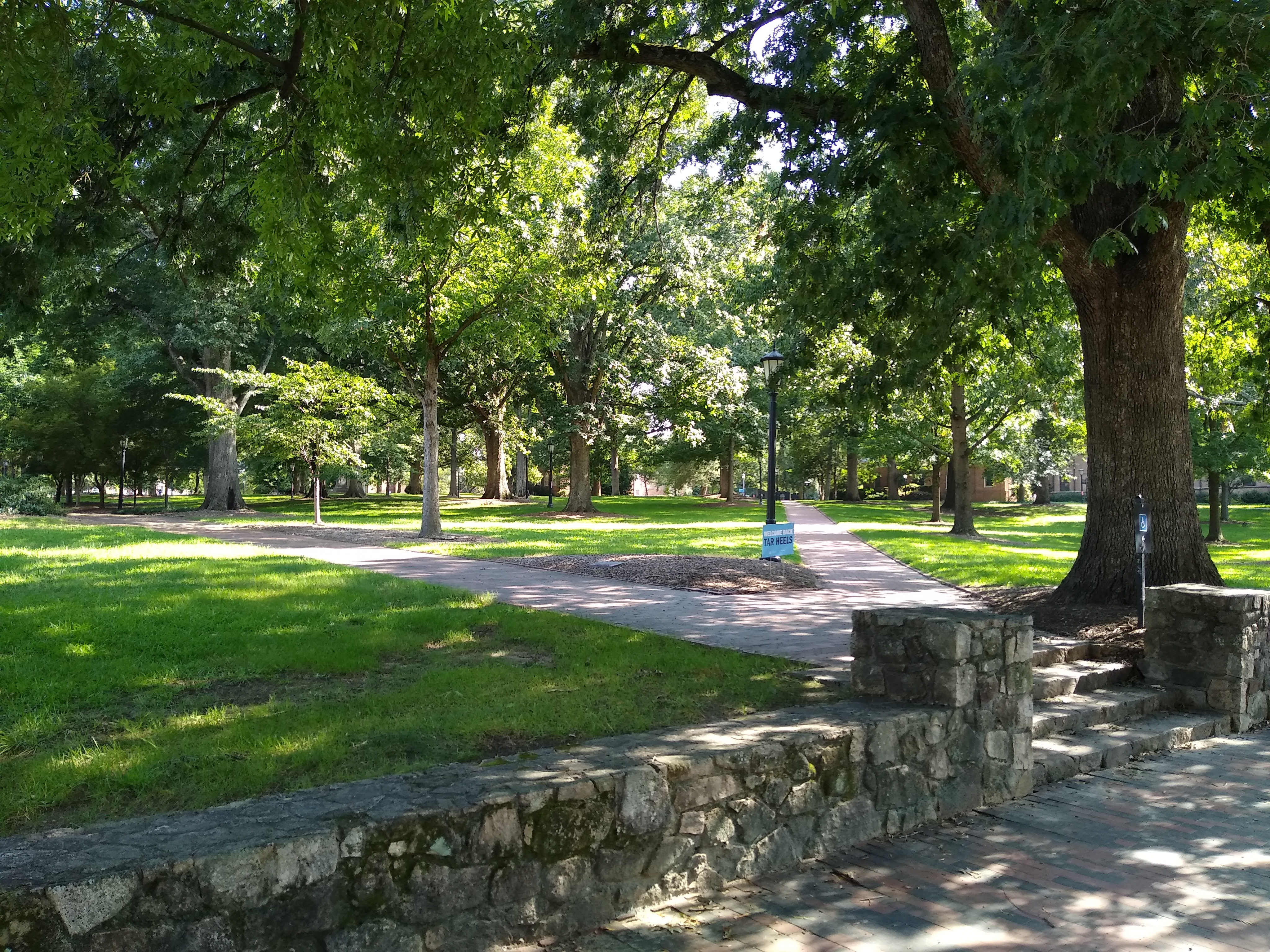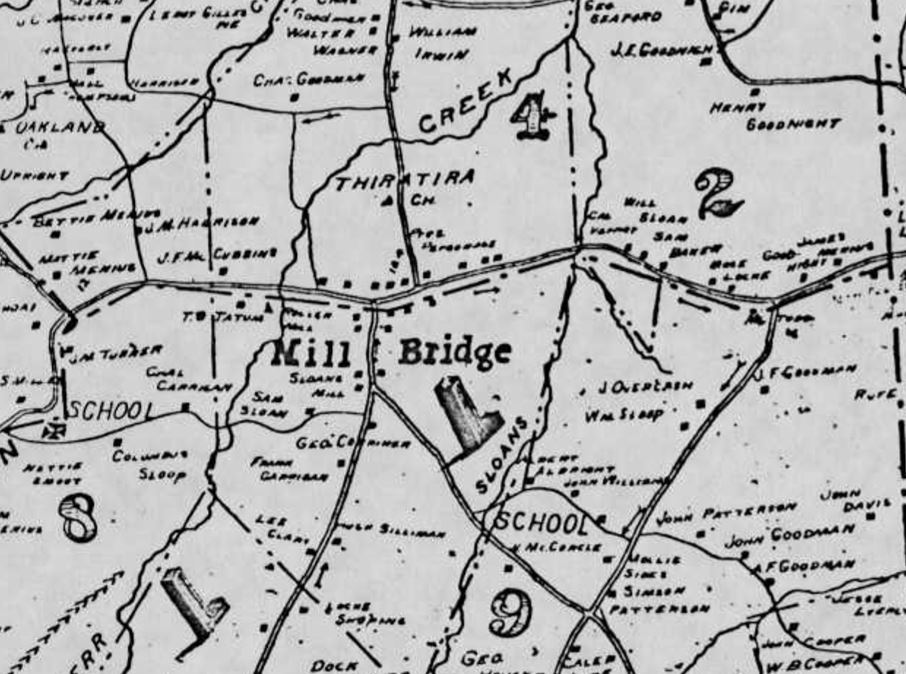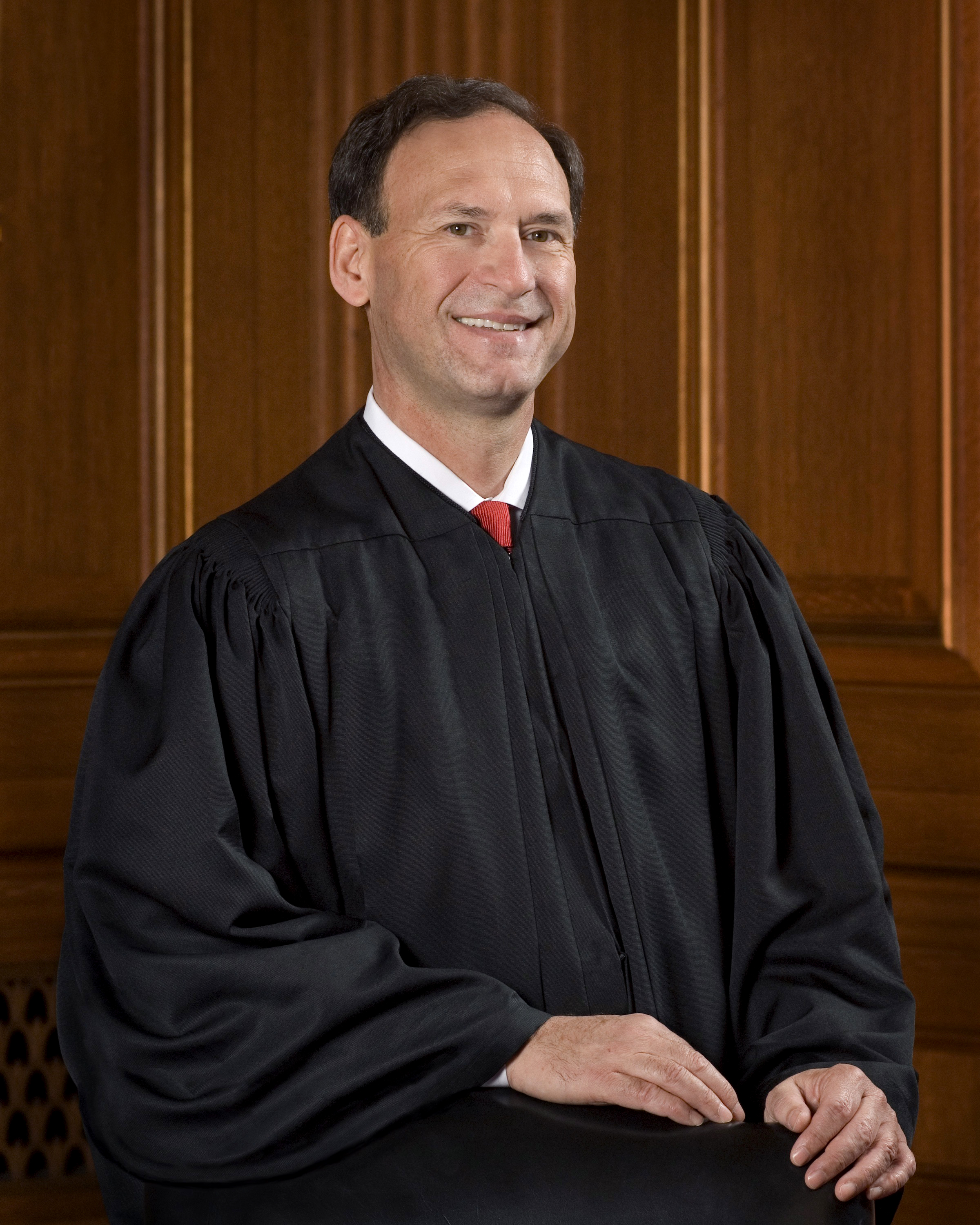|
Samuel Eusebius McCorkle
Samuel Eusebius McCorkle (August 23, 1746 January 21, 1811) was a pioneer Presbyterian preacher, teacher, advocate for public and private education in North Carolina, and the interceptor and progenitor of the University of North Carolina at Chapel Hill, who first promoted the idea of establishing a university in the state. Biography Early life Samuel Eusebius McCorkle was born on August 23, 1746, the eldest child of ten in the family of Alexander McCorkle and Agness Margaret "Nancy" Montgomery McCorkle near Harris's Ferry (present day Harrisburg) in Lancaster County in the Province of Pennsylvania. Both of his parents, from families of Scottish Presbyterian descent, were born in Ulster. They were brought to America during the wave of Scotch-Irish migration in the early 18th century. Samuel's parents took great care in naming him: Samuel for a prophet of God and Eusebius for an early Greek Church historian. At the age of four Samuel was put into an English public school where ... [...More Info...] [...Related Items...] OR: [Wikipedia] [Google] [Baidu] |
Princeton University
Princeton University is a private research university in Princeton, New Jersey. Founded in 1746 in Elizabeth as the College of New Jersey, Princeton is the fourth-oldest institution of higher education in the United States and one of the nine colonial colleges chartered before the American Revolution. It is one of the highest-ranked universities in the world. The institution moved to Newark in 1747, and then to the current site nine years later. It officially became a university in 1896 and was subsequently renamed Princeton University. It is a member of the Ivy League. The university is governed by the Trustees of Princeton University and has an endowment of $37.7 billion, the largest endowment per student in the United States. Princeton provides undergraduate and graduate instruction in the humanities, social sciences, natural sciences, and engineering to approximately 8,500 students on its main campus. It offers postgraduate degrees through the Princeton Schoo ... [...More Info...] [...Related Items...] OR: [Wikipedia] [Google] [Baidu] |
Mill Bridge, North Carolina
Mill Bridge is an unincorporated community and populated place officially registered as Mill Bridge in 1874. It is located primarily in Atwell Township and Steele Township in Rowan County, North Carolina North Carolina () is a state in the Southeastern region of the United States. The state is the 28th largest and 9th-most populous of the United States. It is bordered by Virginia to the north, the Atlantic Ocean to the east, Georgia a ..., United States. With part extending into Mount Ulla Township. The prominent features include the Kerr Mill, Thyatira Presbyterian Church, and Millbridge Speedway. History While there have been farmers and large plantations in the area since the mid-1700s, the community of Mill Bridge was not officially registered until 1874. The Mill Bridge post office existed from July 23, 1874, to September 30, 1903, with Mary E. McCubbin as the first postmaster. In the 1880s, Mill Bridge was a small prosperous agricultural community, cent ... [...More Info...] [...Related Items...] OR: [Wikipedia] [Google] [Baidu] |
Constitution Of North Carolina
The Constitution of the State of North Carolina governs the structure and function of the state government of North Carolina, one of the United States; it is the highest legal document for the state and subjugates North Carolina law. All U.S. state constitutions are, according to the United States Supreme Court, subject to federal judicial review; any provision can be nullified if it, in the view of a majority of the Justices of the Supreme Court, constituted from time to time, conflicts with the US Constitution or any federal law pursuant to the Constitution, even if the identical language was previously upheld as valid by the court. The first North Carolina Constitution was created in 1776 after the American Declaration of Independence. Since the first state constitution, there have been two major revisions and many amendments. The current form was ratified in 1971 and has 14 articles. The three constitutions North Carolina has had are: * 1776: as the first constitution of ... [...More Info...] [...Related Items...] OR: [Wikipedia] [Google] [Baidu] |
Kemp P
Kemp may refer to: Places * Kemp, Illinois * Kemp, Ohio * Kemp, Oklahoma * Kemp, Texas * Kemp Land and Kemp Coast, Antarctica * Kemp Town, a 19th-century estate in East Sussex, England * Kemps Corner, place in India People * Kemp (surname) * Kemp Hannon, American politician * Te Keepa Te Rangihiwinui (c. 1820–98), also known as Major Kemp, Māori military leader Other uses * "Kemp" (song), a song appearing on ''Home From Home'' by Millencolin * Kemp (wool), a type of sheep's hair * Kemp Technologies Kemp, Inc. was founded in 2000 in Bethpage, New York and operates in the application delivery controller industry. The company builds load balancing products which balances user traffic between multiple application servers in a physical, virtua ..., a networking appliances company See also * * Kem (other) {{disambiguation, geo, given name ... [...More Info...] [...Related Items...] OR: [Wikipedia] [Google] [Baidu] |
James Madison
James Madison Jr. (March 16, 1751June 28, 1836) was an American statesman, diplomat, and Founding Father. He served as the fourth president of the United States from 1809 to 1817. Madison is hailed as the "Father of the Constitution" for his pivotal role in drafting and promoting the Constitution of the United States and the Bill of Rights. Madison was born into a prominent slave-owning planter family in Virginia. He served as a member of the Virginia House of Delegates and the Continental Congress during and after the American Revolutionary War. Unsatisfied with the weak national government established by the Articles of Confederation, he helped organize the Constitutional Convention, which produced a new constitution. Madison's Virginia Plan was the basis for the Convention's deliberations, and he was an influential voice at the convention. He became one of the leaders in the movement to ratify the Constitution, and joined Alexander Hamilton and John Jay in writi ... [...More Info...] [...Related Items...] OR: [Wikipedia] [Google] [Baidu] |
Philip Freneau
Philip Morin Freneau (January 2, 1752 – December 18, 1832) was an American poet, nationalist, polemicist, sea captain and early American newspaper editor, sometimes called the "Poet of the American Revolution". Through his newspaper, the ''National Gazette'', he was a strong critic of George Washington and a proponent of Jeffersonian policies. Biography Early life and education Freneau was born in New York City, the oldest of the five children of Huguenot wine merchant Pierre Freneau and his Scottish wife. Freneau was raised Calvinist by parents who were part of a Presbyterian congregation led by a New Light evangelical, Rev. William Tennent, Jr. Freneau later attended a grammar school directed by Tennent. Philip was raised in Matawan, New Jersey. He attended the College of New Jersey (now Princeton University), where he studied under William Tennent, Jr. Freneau's close friend at Princeton was James Madison, a relationship that would later contribute to his establi ... [...More Info...] [...Related Items...] OR: [Wikipedia] [Google] [Baidu] |
Hugh Henry Brackenridge
Hugh Henry Brackenridge (1748June 25, 1816) was an American writer, lawyer, judge, and justice of the Supreme Court of Pennsylvania. A frontier citizen in Pittsburgh, Pennsylvania, United States, he founded both the Pittsburgh Academy, now the University of Pittsburgh, and the ''Pittsburgh Gazette'', still operating today as the ''Pittsburgh Post-Gazette''. Life Brackenridge was born in Campbeltown a small town on the Kintyre peninsula in Scotland. In 1753, when he was 5, his family emigrated to York County, Pennsylvania, near the Maryland border, then a frontier. At age 15 he was head of a free school in Maryland. At age 19 he entered the College of New Jersey, now Princeton University, where he joined Philip Morin Freneau, James Madison, and others in forming the American Whig Society to counter the conservative Cliosophic, or Tory, Society. (Today these are conjoined as the American Whig–Cliosophic Society.) Freneau and Brackenridge collaborated on a satire on American ma ... [...More Info...] [...Related Items...] OR: [Wikipedia] [Google] [Baidu] |
Hudibrastic
Hudibrastic is a type of English verse named for Samuel Butler's ''Hudibras'', published in parts from 1663 to 1678.Cox, Michael, editor, ''The Concise Oxford Chronology of English Literature'', Oxford University Press, 2004, For the poem, Butler invented a mock-heroic verse structure. Description Instead of pentameter, the lines were written in iambic tetrameter. The rhyme scheme is the same as in heroic verse (aa, bb, cc, dd, etc.), but Butler used frequent feminine rhyme for humor.Baldick, Christopher (1996).Hudibrastic verse in ''The Concise Oxford Dictionary of Literary Terms''. Oxford Reference Online (subscription required), Oxford University Press. Retrieved on February 27, 2007. Example The first fourteen lines of ''Hudibras'' illustrate the verse form: :When civil dudgeon first grew high, :And men fell out they knew not why; :When hard words, jealousies, and fears, :Set folks together by the ears, :And made them fight, like mad or drunk, :For Dame Religion, as for pu ... [...More Info...] [...Related Items...] OR: [Wikipedia] [Google] [Baidu] |
Doggerel
Doggerel, or doggrel, is poetry that is irregular in rhythm and in rhyme, often deliberately for burlesque or comic effect. Alternatively, it can mean verse which has a monotonous rhythm, easy rhyme, and cheap or trivial meaning. The word is derived from the Middle English ''dogerel'', probably a derivative of ''dog''. In English it has been used as an adjective since the 14th century and a noun since at least 1630. Appearing since ancient times in the literatures of many cultures, doggerel is characteristic of nursery rhymes and children's song. Examples The Scottish poet William McGonagall (1825-1902) has become famous for his doggerel, which many remember with affection despite its seeming technical flaws, as in his poem " The Tay Bridge Disaster": Hip hop lyrics have also explored the artful possibilities of doggerel. . Chaucer Geoffrey Chaucer (; – 25 October 1400) was an English poet, author, and civil servant best known for '' The Canterbury Tales''. He has ... [...More Info...] [...Related Items...] OR: [Wikipedia] [Google] [Baidu] |
American Whig–Cliosophic Society
The American Whig–Cliosophic Society (Whig-Clio) is a political, literary, and debating society at Princeton University and the oldest debate union in the United States. Its precursors, the American Whig Society and the Cliosophic Society, were founded at Princeton in 1769 and 1765 by James Madison, William Paterson, Oliver Ellsworth, and Aaron Burr. Originally two separate organizations, the American Whig Society and the Cliosophic Society were the primary student organizations at Princeton until the end of the 19th century. They "functioned in many ways as separate colleges within the College of New Jersey," creating their own schedule of classes and offering diplomas to graduates." Clio's members were usually northerners, while Whig's typically came from the southern states. In the decades before the Civil War, the societies frequently debated the subject of slavery. Despite their regional differences, both societies voted regularly in support of slavery's continuation an ... [...More Info...] [...Related Items...] OR: [Wikipedia] [Google] [Baidu] |
Oklahoma State University
Oklahoma (; Choctaw: ; chr, ᎣᎧᎳᎰᎹ, ''Okalahoma'' ) is a state in the South Central region of the United States, bordered by Texas on the south and west, Kansas on the north, Missouri on the northeast, Arkansas on the east, New Mexico on the west, and Colorado on the northwest. Partially in the western extreme of the Upland South, it is the 20th-most extensive and the 28th-most populous of the 50 United States. Its residents are known as Oklahomans and its capital and largest city is Oklahoma City. The state's name is derived from the Choctaw words , 'people' and , which translates as 'red'. Oklahoma is also known informally by its nickname, " The Sooner State", in reference to the settlers who staked their claims on land before the official opening date of lands in the western Oklahoma Territory or before the Indian Appropriations Act of 1889, which increased European-American settlement in the eastern Indian Territory. Oklahoma Territory and Indian Terri ... [...More Info...] [...Related Items...] OR: [Wikipedia] [Google] [Baidu] |
John Witherspoon
John Witherspoon (February 5, 1723 – November 15, 1794) was a Scottish-American Presbyterian minister, educator, farmer, slaveholder, and a Founding Father of the United States. Witherspoon embraced the concepts of Scottish common sense realism, and while president of the College of New Jersey (1768–1794; now Princeton University) became an influential figure in the development of the United States' national character. Politically active, Witherspoon was a delegate from New Jersey to the Second Continental Congress and a signatory to the July 4, 1776, Declaration of Independence. He was the only active clergyman and the only college president to sign the Declaration. Later, he signed the Articles of Confederation and supported ratification of the Constitution of the United States. In 1789 he was convening moderator of the First General Assembly of the Presbyterian Church in the United States of America. Early life and ministry in Scotland John Witherspoon was born in ... [...More Info...] [...Related Items...] OR: [Wikipedia] [Google] [Baidu] |







